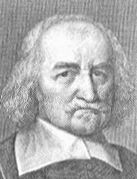





The passages have been divided into two groups of six passages each. The final will consist of six of these passages (three from each group), and you will be asked to choose four (two from each group) to write on. I will reproduce the texts in full for the final, so you needn't bother about memorizing them.
For each passage that you choose, your task is the same: Write a concise philosophical discussion of the passage. Tell the reader what is going on in the passage. In the case of passages which contain an argument, you should clearly set out that argument and offer a critical assessment of it. You should, when appropriate, relate the themes and ideas in the passages to relevant ‘big picture’ views of the philosopher in question. If the view expressed in the passage is at odds with the view expressed by some other philosopher we have read, you will want to bring that out as well. Many of the passages are significant, and not tangential, texts so you should take the opportunity to highlight the ideas which make those texts central to the debates of which they are a part. This paragraph was important. Go back and read it again. Note that I’m asking for a critical assessment of the passage.
You are being given a substantial amount of leeway here, and so you need to use it wisely. There is no one right way to discuss philosophically these passages, but this does not mean that anything you write down will be acceptable. In particular, the ‘buckshot’ approach is actively discouraged: don't write down absolutely everything that springs to your mind when you read the passage, but clearly and in a well-organized way discuss, from a philosophical point of view, the passage in question. Neither do you need to write about every aspect of the passage in question; a careful, insightful, philosophically attuned essay on some one important aspect of the passage will be more than acceptable. There aren't rock-solid length limitations, but I think that each passage can be more than adequately discussed in the neighborhood of 600 words. Bear in mind that the point of any final exam is for students to demonstrate command and understanding of the material covered in the course. Accordingly, the best essays will explain key terms and distinctions, will demonstrate insightfulness, a solid understanding of the text in question and its place in the relevant philosophical debate, and will not merely regurgitate what has been said in class. As with any writing, accuracy matters, but so does the clarity of your essay--both in its mechanics and in its organization.
I encourage you to study in groups; I think that getting together among yourselves to study will be the best way to prepare for the exam. If you want to come by (separately or in groups) to talk to me, please do. You will not be allowed to bring your book or any notes to the exam. As indicated on the syllabus, the final will be on Wednesday 7 June from 8:00 to 10:00 in our classroom. Please bring blank bluebooks with you.
2. Hobbes, Leviathan. From the first full paragraph on p. 60 (which begins, “Fourthly, because every subject…”) through the next paragraph (which ends, “…the actions committed by himself.”)
3. Locke, Second Treatise on Government. Sections 25 through 27 (p. 215)
4. Locke, Second Treatise on Government. Section 119 (p. 230)
5. Rousseau, The Social Contract. From the last paragraph of the first column on p. 410 (which begins, “Again, the Sovereign, being formed…” through the end of Chapter VII (through the paragraph which ends, “…the most frightful abuses.”
6. Rousseau, The Social Contract. From the first full paragraph
in the second column of p. 425 (which begins, “There is but one law which…”
through the end of Chapter II (through the paragraph which ends, “… I should
not have been free.”)
7. Mill, Of Liberty. The paragraph which spans the two columns
on p. 506. (Which begins, “The object of this essay…”)
8. Marx, Economic and Philosophic Manuscripts. The paragraph in the middle of the second column of p. 309 (which begins, “What constitutes the alienation of labor?…”)
9. Marx & Engels, Communist Manifesto. From the last paragraph on p. 312 (which begins, “The distinguishing feature of Communism…” through the bottom of the first column on p. 313 (through the paragraph which ends “…the ruling class requires it.”)
10. Rawls, A Theory of Justice. The paragraph which spans the two columns on p. 327 (which begins “To illustrate the difference principle….”)
11. Rawls, A Theory of Justice. The first three paragraphs of Section 24. From the paragraph on p. 329 which begins, “The idea of the original position…” through the paragraph in the next column which ends, “…to rule out these facts…”
12. Nozick, Anarchy, State, and Utopia. The first two paragraphs
of the section “How Liberty Upsets Patterns”. From the paragraph
in the second column on p. 273 which begins, “It is not clear how those
holding…” through the paragraph in the first column on p. 274 which ends,
“…capitalist acts between consenting adults.”